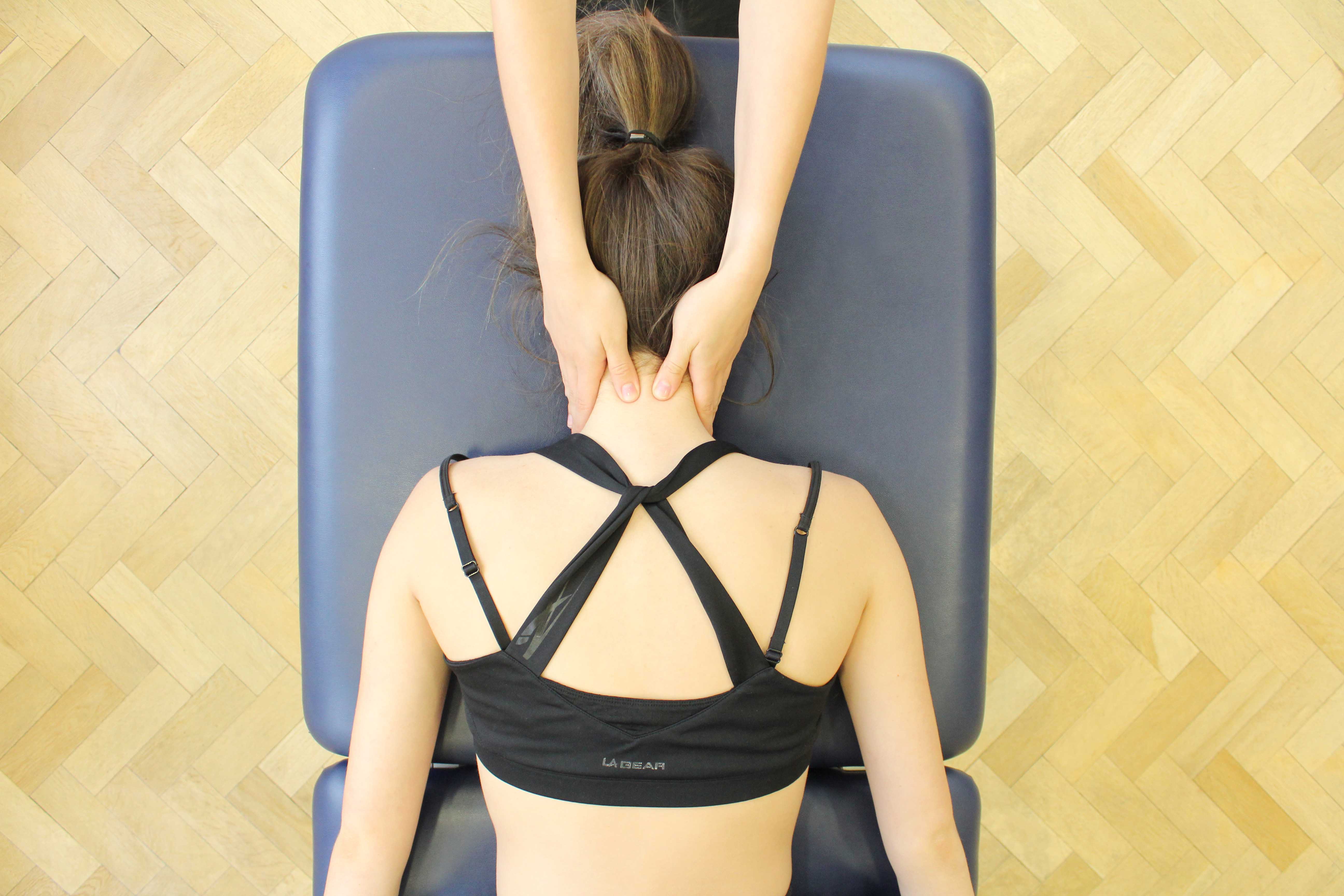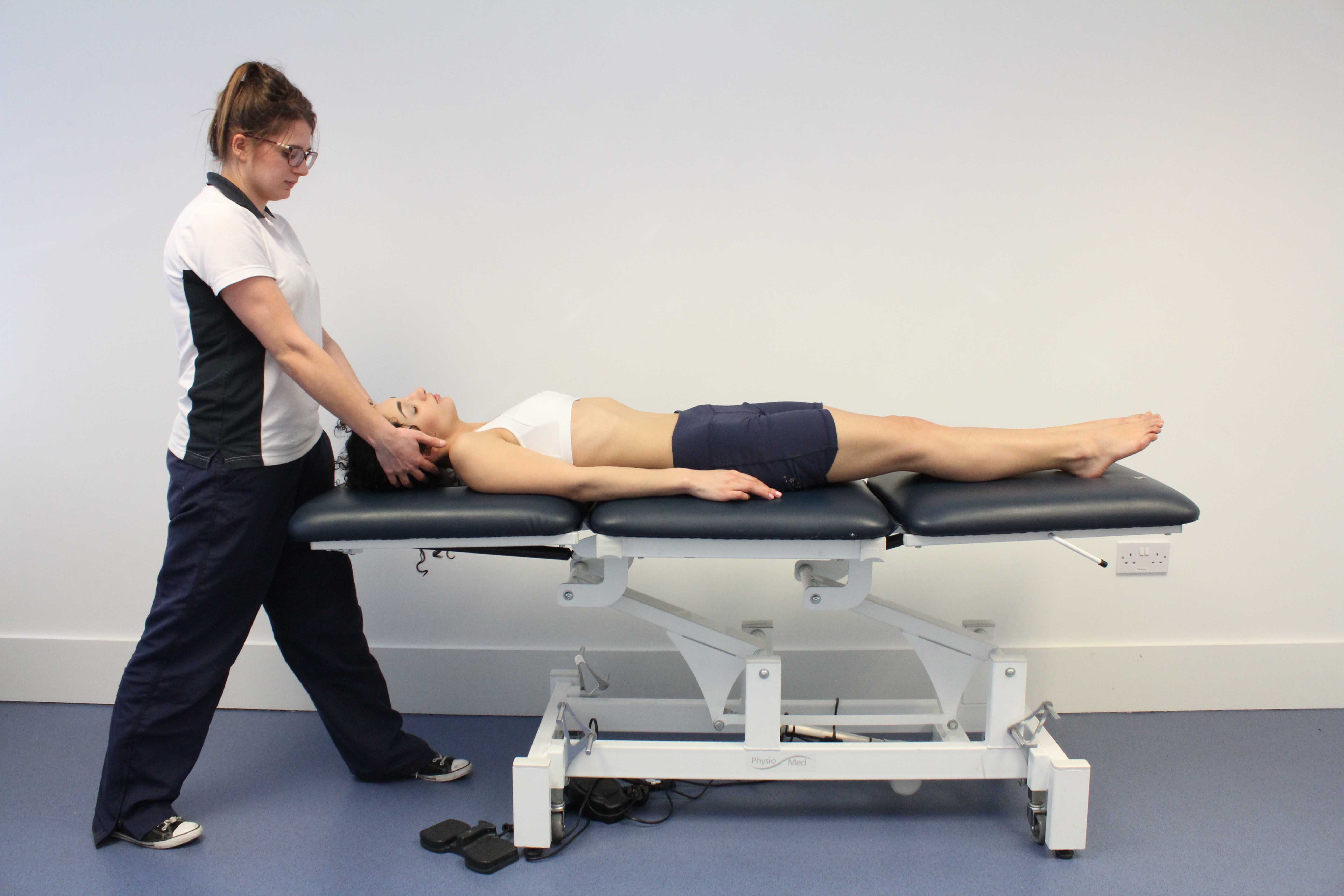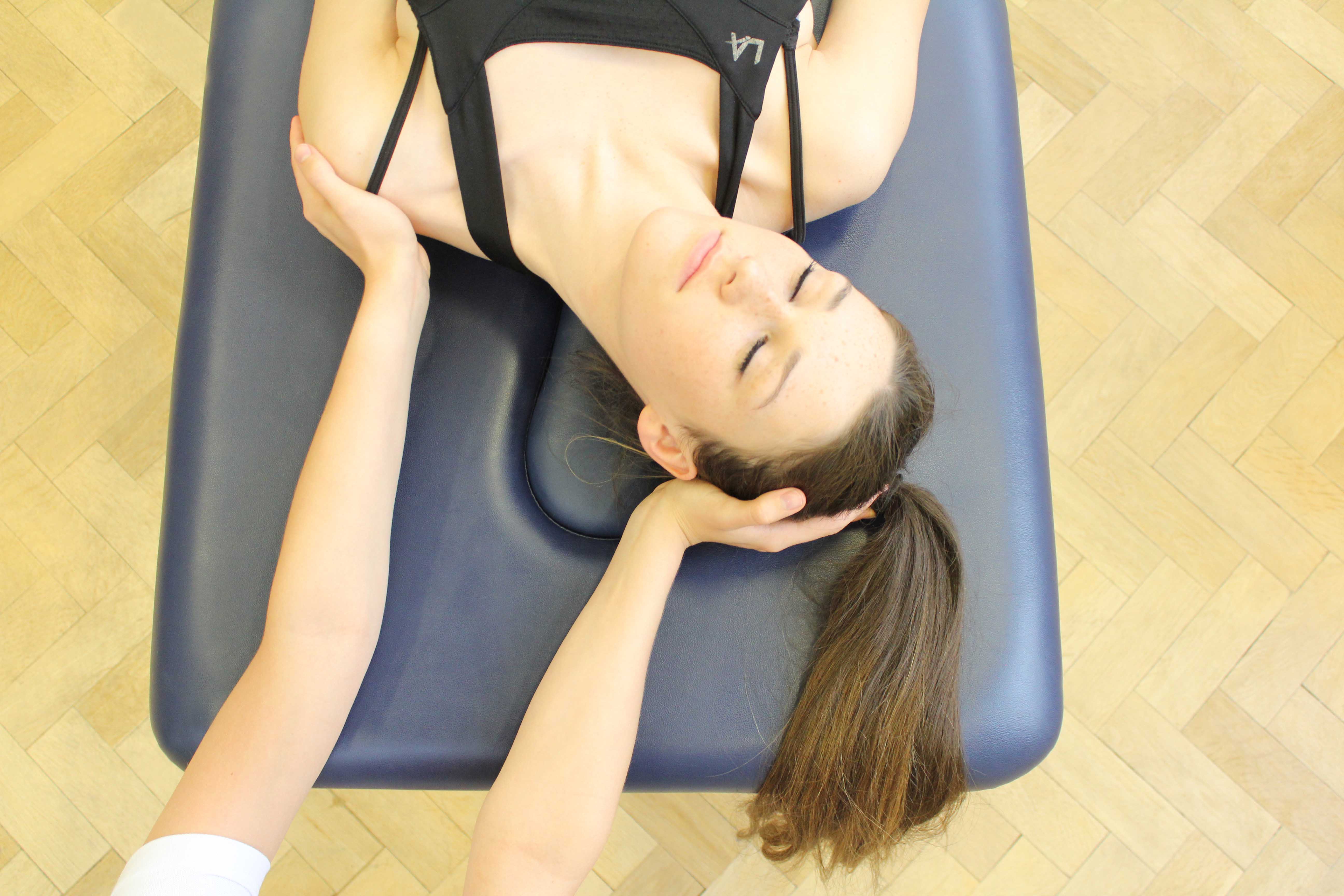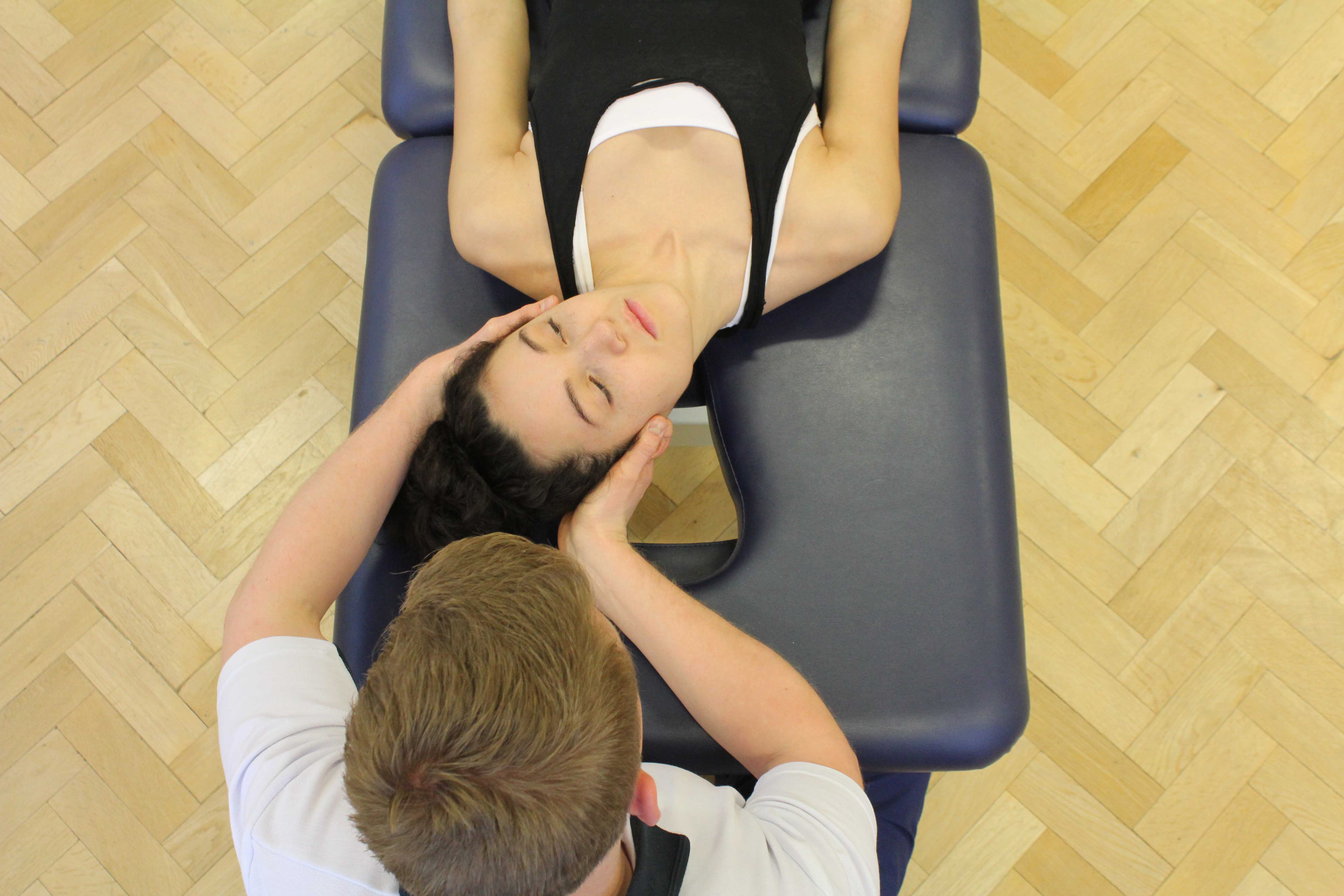What is a herniated disc?
A herniated disc, or ‘slipped disc’, is when a disc in the upper back compresses a nerve causing pain. A disc is tissue that sits between each vertebra in the spine. There are nerves running down the spine in close proximity to the discs so when a disc becomes damaged it compresses on the nerve, causing pain. The upper back is the least common location of a herniated disc.
 Above: Mobilisations of the mid thoracic spine by experienced physiotherapist
Above: Mobilisations of the mid thoracic spine by experienced physiotherapistWhat causes a herniated disc?
A disc is made up of circular tissue that sits between each vertebra in the spine. The inside of the disc is soft and is surrounded by a tough exterior. A herniated disc is when the tough exterior is damaged and the soft tissue protrudes through the damage. It is this protrusion that compresses the nerve and causes pain. The damage to the lining can be caused by:
- Wear and tear
- Trauma, such as lifting a heavy load with a bent back
- Repetitive flexing (bending) of the upper back
What are the symptoms of a herniated disc?
A herniated disc compresses the nerves in the upper spine. Symptoms may be felt across the upper back. Symptoms can include:
- Pain, especially when flexing (bending) the spine
- Pain inhibited movement
- Muscle weakness
- Pins and needles
- Numbness
 Above: Chopping percussion massage applied to the upper back
Above: Chopping percussion massage applied to the upper backPhysiotherapy for a herniated disc
Physiotherapy is very beneficial for a herniated disc and can relieve symptoms. At Physio.co.uk our physiotherapists will assess and treat you as an individual. Treatment may include:
- Heat therapy
- Electrotherapy
- Postural advice and exercises
- Range of movement exercises
- Stretching exercises
- Strengthening exercises
- Mobilisations
 Above: Soft tissue massage of the upper back muscles
Above: Soft tissue massage of the upper back musclesCan a herniated disc cause any long-term effects?
Physiotherapy generally provides a successful outcome for most patients. However injections or surgery would be considered for patients that are still suffering pain even after physiotherapy intervention.
 Above: Mobilisations of the thoracic spine by an experienced physiotherapist
Above: Mobilisations of the thoracic spine by an experienced physiotherapistTo arrange an assessment with Physio.co.uk please contact us or call 0330 088 7800.

 0330 088 7800
0330 088 7800


































